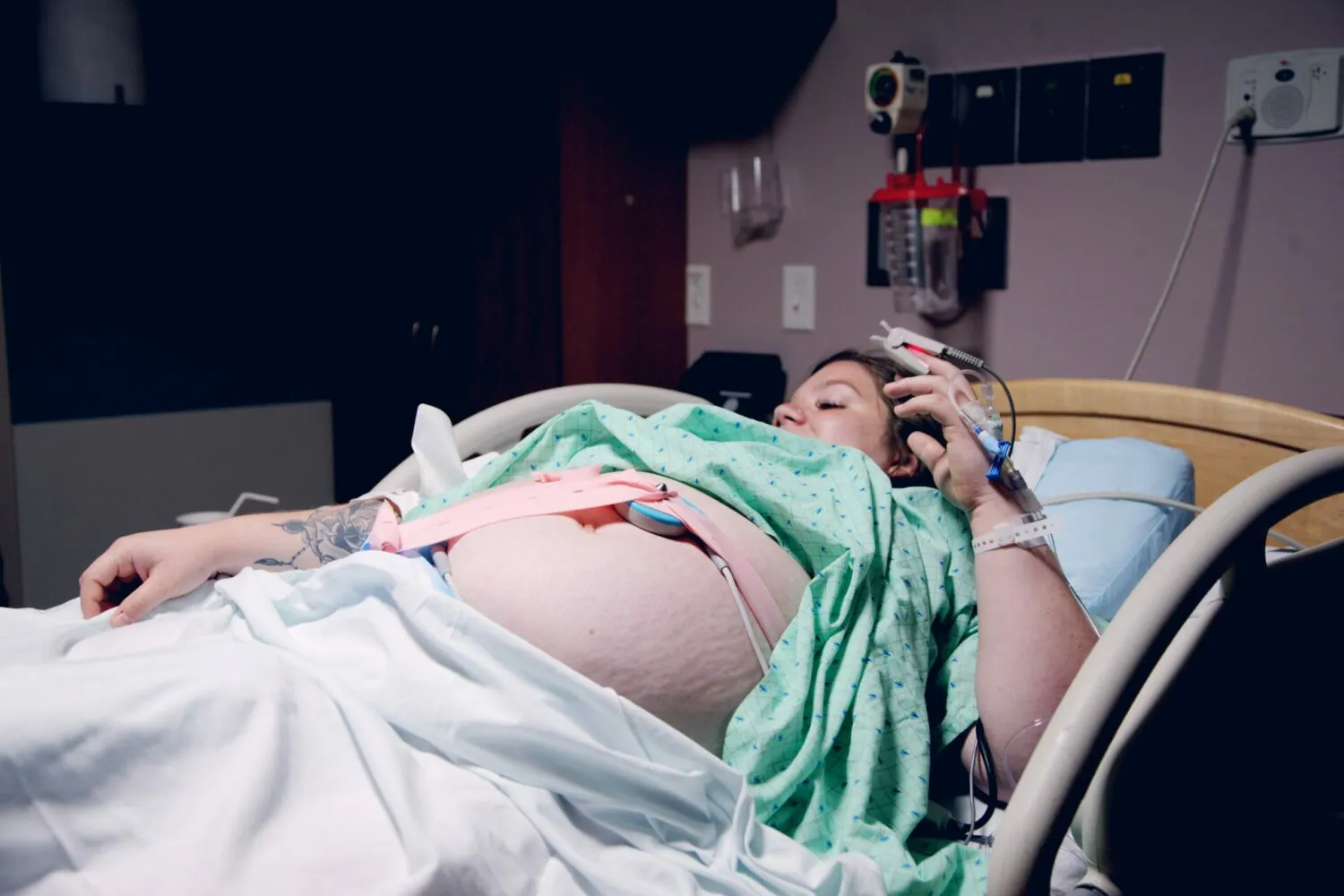
Figures released by NHS England last week showed that one in six intensive-care patients is an unvaccinated pregnant woman – highlighting the bleak consequences of not getting jabbed. I’m a GP, and at the height of the second wave of the pandemic, I had the Covid-19 vaccine at 29 weeks pregnant.
But let’s not pretend this is an easy decision.
At first, despite being all for a vaccination, I was very undecided about rolling up my sleeve for something so new while pregnant. When UK GPs rolled out the vaccination programme last winter, initial guidance from the Joint Committee on Vaccination and Immunisation (JCVI) was that pregnant women weren’t to be given the vaccine – so I accepted that I wouldn’t be getting it. As the evidence built up, guidance was updated, and pregnant women at risk of exposure were able to have it. I realised I did want that protection for myself and for my family.
An estimated 60,000 lives have been saved – 52,600 hospital admissions avoided and 22 million Covid-19 infections prevented by coronavirus vaccines – the majority of these delivered by GPs, alongside their routine surgeries. Since April 2021, all pregnant women have been offered the vaccine in the same way as the rest of the population, as no specific safety concerns related to expectant mothers having the jab have been found.
Pregnant women have the flu and whooping cough vaccines safely every year – often without a second thought. In pregnancy, there is very little safety data for any medications and for something as new as the Covid-19 vaccine, there is clearly no long-term data available.
The science of vaccines has been understood for some time, however, and there’s no scientific reason it will affect the mother and baby and no evidence it can affect fertility or cause miscarriage. What made the decision for me was the fact that documented side effects from vaccines are so rare, but there is an abundance of evidence that being infected with Covid during pregnancy is much more dangerous.
The risk of blood clots with the AstraZeneca vaccine was well publicised, but this risk is more than ten times higher if you catch Covid-19. For me, the risk of either ending up on an intensive-care unit while pregnant, having a premature birth, or worse, a stillbirth, or having a debilitating condition like long Covid as a new mum clearly outweighed the minimal risks of having a new vaccine.
As another long winter approaches, and the impacts of the pandemic make it harder to access care, pregnant women are a vulnerable group who need to be prioritised for vaccination.
Campaign group Pregnant then Screwed showed high rates of vaccine hesitancy among pregnant women this summer, due to mixed messages and misinformation on social media. Discussions around vaccination can be heated and although the jab is recommended to prevent against the known risks of this disease, it is an individual decision. The resources below can help you with your decision, or you can speak to a trusted source such as your GP – this would be perfect for a telephone consultation.
I’m grateful I was able to get protected so early in the vaccine roll-out due to being a healthcare worker. The fact that it is now widely available to all pregnant women shows that it works. Colleagues working in intensive care are reporting Covid deaths among younger, unvaccinated people. This is a tragedy. Choosing to get vaccinated is not an easy decision, but it is the right one.
I urge you to weigh up the evidence and choose to protect yourself if you are pregnant this winter – not only against influenza and whooping cough, but please, please roll up your sleeve for the coronavirus jab too.
Ellen Welch is a GP and Editorial Lead with the Doctors’ Association UK and is donating the fee for this piece to Pregnant then Screwed.
Useful resources:
The Royal College of Obstetricians and Gynaecologists
How the Covid vaccine works, NHS
Read the original piece here





